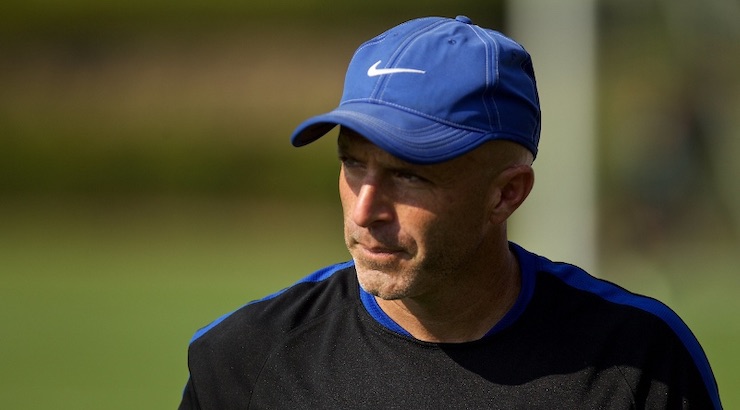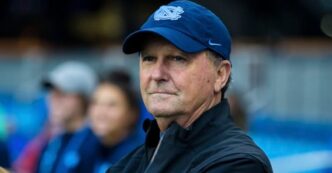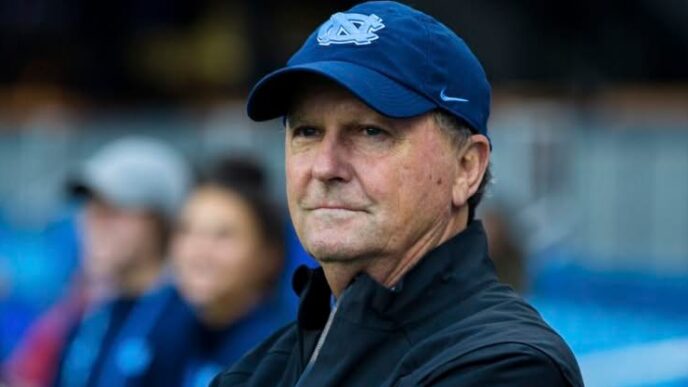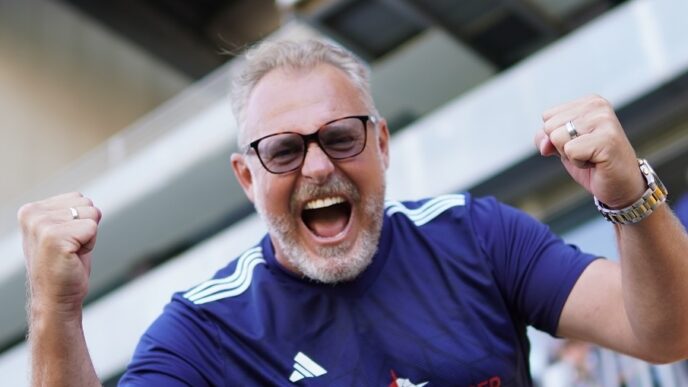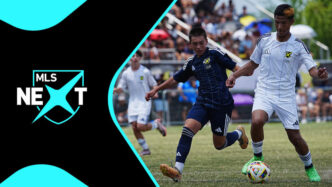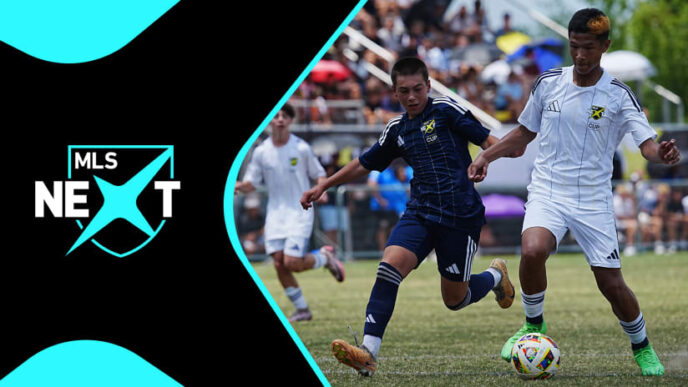Exclusive: Former USYNT Coach Shaun Tsakiris on Player Development and America’s Soccer Identity
In the evolving landscape of American soccer, the quest for a distinct national identity remains paramount. Shaun Tsakiris, a former U.S. Youth National Team (USYNT) coach and current Technical Director of Los Gatos United in Northern California, emphasizes the critical need for the United States to cultivate its own soccer identity. With an illustrious career that includes coaching the U.S. Soccer U16 and U17 Boys’ National Teams and earning accolades such as the U.S. Soccer Development Academy Coach of the Year, Tsakiris brings a wealth of experience and insight into the discussion on player development and the future of American soccer.
Inside the Mind of a Top Coach: Shaun Tsakiris on The Importance of a Defined Soccer Identity
Tsakiris asserts that establishing a clear soccer identity is essential for the growth and success of the sport in the U.S. He believes that both clubs and the national team must have a unified vision that reflects the unique characteristics and culture of American soccer. This identity should guide coaching philosophies, player development pathways, and playing styles, ensuring consistency and a sense of purpose across all levels of the game.
Player Development and the Role of College Soccer
Addressing the pathway to professionalism, Tsakiris acknowledges that while Major League Soccer (MLS) academies are pivotal in nurturing young talent, college soccer remains a viable route for aspiring professionals. Tsakiris emphasizes that the experiences and education gained during collegiate play can be invaluable, contributing to the holistic development of players.
Challenges and Opportunities in American Soccer
Tsakiris identifies several challenges in the current American soccer system, including the need for standardized coaching methodologies and the alignment of developmental goals across various organizations. He advocates for a collaborative approach where clubs and national programs work in synergy to cultivate talent that embodies the American soccer identity. By doing so, the U.S. can enhance its competitiveness on the international stage and foster a more cohesive soccer culture domestically.
Looking Ahead: The Future of U.S. Soccer
Optimistic about the future, Tsakiris envisions a time when American soccer is recognized for its distinctive style and strategic approach. He stresses the importance of patience and persistence in this developmental journey, acknowledging that building a robust soccer identity is a gradual process that requires dedication from all stakeholders involved. Tsakiris’s perspectives shed light on the imperative of defining and embracing a unique soccer identity in the United States. As American soccer continues to evolve, leaders like Tsakiris play a crucial role in steering the sport toward a promising and distinctive future.
SoccerToday Diane Scavuzzo’s exclusive interview with Shaun Tsakiris
Diane Scavuzzo: Let’s start off with the simpler question. Do you think that going to college and playing collegiate soccer closes the door to becoming a professional player?
Shaun Tsakiris: No, I do not think so.
COLLEGE IS DEFINITELY THE SECOND TIER FOR A TOP PLAYER.
But college can be a great option for talented players, what you learn as a young person in college is super valuable. I would not be the coach I am today if I had not gone to UCLA.
Diane Scavuzzo: So there is still a small percentage of players who can emerge from collegiate soccer and become professionals?
Shaun Tsakiris: Absolutely. The clubs want top players. The reality is if an MLS club finds a top player — whether they are 17 years old or 22 years old — who they feel can help their club, they are going to go after them, even if they did not grow up in their system.
Diane Scavuzzo: The MLS Academies are the top of the American youth player development pyramid. The players selected to train at these prestigious academies are seriously committed to the pathway of becoming a professional soccer player — but what happens if a player becomes injured or is not offered a contract? Or really wants to get a college education?
Shaun Tsakiris: The MLS Development Academies are a business and their job is to develop professionals.
The natural pathway and progression for a talented young player is to train at a professional club and develop, with the hope that that the player will one day develop to the level where he is selected to play on their first team.
While this is the ideal model but it doesn’t always happen.
These pro clubs are justifiably less interested in the college pathway. In the last five years, MLS owners have put substantial resources into developing young talent.
The MLS clubs should do what is best for them.

Diane Scavuzzo: The MLS Academies are not all equal. Nor are the club academies. Why are there so few clubs truly doing a great job developing our elite youth players?
Shaun Tsakiris: Because everyone has a different philosophy on how to develop players— the MLS clubs are doing it their way and doesn’t mean that their way is right or wrong. The way one MLS club wants to develop players may be entirely different from the way another MLS club wants to. I am not going to say this person is doing it right or wrong.
WHAT I AM HOPEFUL FOR IS THAT CLUBS HAVE A PLAN AND A STRATEGY IN PLACE.
Clubs have the ability to play any style they want. I will never knock a club’s style, just if they do not have a plan.
Today, more MLS teams have a plan but it will take time to implement — this is a long process but you are not doing a good job if you do not have an identity.
And, this is not a fast process, it does not happen in a year. You end up seeing the benefits and reaping the rewards four or five years down the road. You never see a Technical Director signing a two-year deal at a club because to even implement a philosophy takes four years at a minimum — because you are also creating a culture.
IT TAKES TIME TO DEVELOP A CULTURE.

Diane Scavuzzo: What is lacking in our American soccer culture?
Shaun Tsakiris: I still feel that we are culturally behind.
When you compare our soccer culture to the rest of the world, everyone says it, and it is true. The rest of the world is generations ahead of us in experience.
When you talk about strategy, European clubs are 100 years ahead of us — and they have had the time to develop their plan and create their identity.
But we are catching up and you can see it in how MLS clubs are training players. The MLS has made great progress towards developing homegrown talent. When a club puts young people on their first team, they are doing something right. This the end goal for an MLS club and they are accomplishing their goal.
I AM OPTIMISTIC ABOUT OUR FUTURE. I AM OPTIMISTIC ABOUT OUR FIRST TEAM.
I really like what Gregg Berhalter, the new head coach of the U.S. Men’s National Team, is doing. You can see he has a plan. You can disagree with the plan or the style, but for me, watching what he has implemented so far, you can see there is a true plan.
Diane Scavuzzo: What is a club’s responsibility for developing players for the national teams?
Shaun Tsakiris: In relation to the national team, if I am an MLS club, I am developing players for my first team, who we want to be — in our style of play — not for the first team. And, I am not developing players for what U.S. Soccer is trying to implement in the Development Academy.
MLS CLUBS HAVE TO DEVELOP PLAYERS FOR THEIR FIRST TEAM.
Diane Scavuzzo: Can you clarify or elaborate on what you mean by plan?
Shaun Tsakiris: One of the real issues in youth soccer today is there hasn’t been a true plan for what type of players we want to develop in each club.
When you watch a specific team play, you want to clearly see they are playing in their team’s style — and be able to say that a player belongs to a specific team when you see them play.

A professional club has to work backward — after identifying the top qualities and characteristics of the players’ they want on their first team, the club then can develop youth players according to their plan and create their identity.
Diane Scavuzzo: Has America decided what type of player we want?
Shaun Tsakiris: We are too big a country to say Americans are going to be “these types” of players.
For us to say we want to play, for example, like Holland, I say shame on us.
WE SHOULD WANT TO BE BETTER. WHY WOULD WE WANT TO PLAY LIKE ANYONE ELSE?
We are a melting pot with people from all over the world and we can determine how we want to play.
